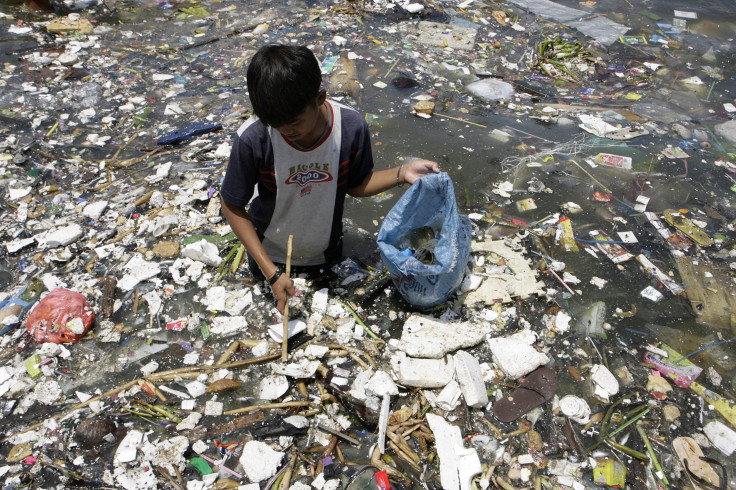Plastic Waste Found At The Bottom Of Mariana Trench
A team led by an American explorer found plastic waste on the seafloor at the world’s deepest point, the Mariana Trench, which is nearly 11 km (seven miles) under the ocean, indicating the seriousness of the plastic-waste problem that is choking the planet's environment.
Victor Vescovo and his team made this startling discovery while descending nearly 11km (seven miles) to the Mariana Trench in Pacific Ocean, reports said.
During their expedition, Victor Vescovo and his team undertook five dives to the bottom of the Mariana Trench. Robotic landers were also deployed to explore this remote terrain of the ocean during the expedition.
The plastic waste was found at a depth of 36,000ft (10,898m) of the ocean, along with other items of man-made trash reports said. Micro-plastic alone constituted more than one third of the debris, added the report.
The world's oceans are now estimated to be home to about 100 million tons of plastic waste, which is causing enormous damage to sea life. Experts have warned that this quantity is set to treble within a decade.
Vescovo's team found a plastic bag and sweet wrappers at the seafloor. Metal, rubber, fishing gear, glass and various other items were also found lying at the deepest point of the ocean.
The findings of the study have been published in the journal Marine Policy.
The team said they discovered four new species of prawn-like creatures called amphipods. They also reported a creature called spoon worm at a depth of 7,000m and a pink snailfish at 8,000m.
Former US Navy submariner and explorer Don Walsh and Swiss Engineer Jacques Piccard were the first to reach the Mariana Trench in 1960 in their submersible, the bathyscaphe Trieste.
Titanic director James Cameron repeated the feat in 2012.
Vescovo's dive, in his sub designed to withstand the enormous pressure at such depths, was verified to have reached 10,972m, making it the deepest by humans so far.
Following the expedition, the team now plans to conduct a study to find out if the sea creatures they had collected contain microplastics or not. Vescovo, a private equity investor, funded the expedition himself.
It is part of an ambitious mission called Five Deeps expedition, which aims to explore the deepest parts in each of the world's five oceans.
Vescovo has dived the Puerto Rico Trench in the Atlantic Ocean, the South Sandwich Trench in the Southern Ocean, and the Java Trench in Indian Ocean.

© Copyright IBTimes 2025. All rights reserved.





















